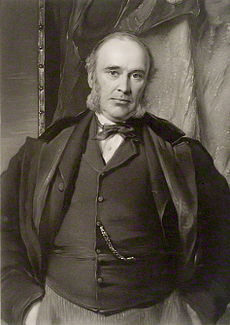Emily Smith, 1st Viscountess Hambleden
|
The Right Honourable William Henry Smith |
|
|---|---|
 |
|
| First Lord of the Treasury | |
|
In office 14 January 1887 – 6 October 1891 |
|
| Monarch | Victoria |
| Prime Minister | The Marquess of Salisbury |
| Preceded by | The Marquess of Salisbury |
| Succeeded by | Arthur Balfour |
| Leader of the House of Commons | |
|
In office 14 January 1887 – 6 October 1891 |
|
| Monarch | Victoria |
| Prime Minister | The Marquess of Salisbury |
| Preceded by | Lord Randolph Churchill |
| Succeeded by | Arthur Balfour |
| Personal details | |
| Born |
24 June 1825 London, England |
| Died | 6 October 1891 (aged 66) |
| Nationality | British |
| Political party | Conservative |
| Spouse(s) |
Emily Danvers (1828–1913) |
| Alma mater | None |
William Henry Smith PC (24 June 1825 – 6 October 1891) was an English bookseller and newsagent of the family firm W H Smith, who expanded the firm and introduced the practice of selling books and newspapers at railway stations. He was elected a Member of Parliament in 1868 and rose to the position of First Lord of the Admiralty less than ten years thereafter. Because of his lack of naval experience, he was perceived as a model for the character Sir Joseph Porter in H.M.S. Pinafore. In the mid-1880s, he was twice Secretary of State for War, and later First Lord of the Treasury and Leader of the House of Commons, among other posts.
Smith was born in London, the son of William Henry Smith (1792–1865). He was educated at Grammar School before joining the business with his father in 1846, at which time the firm became W H Smith & Son. Smith and his father took advantage of the railway boom by opening newsstands on railway stations, starting with Euston in 1848. In 1850 the firm opened depots in Birmingham, Manchester and Liverpool. The business became a household name (W H Smith), and Smith used the success of the firm as a springboard into politics.
He was elected in February 1878 a Fellow of the Royal Society.
...
Wikipedia
